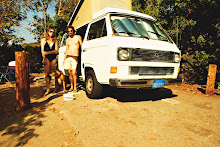
It ended in a fit of rage, with a shout that I was in the midst of a nervous breakdown. It ended with a slam of a door, the thud of shoes hitting the wall, the crack of books falling from the bookcase onto the floor. It ended with me on the couch, head in my palms quivering from anger. It ended with me pacing the floor to the sounds of Fugazi and then later, Seaweed. It ended with disassembling the doorknob because the latch had become stuck. It ended with a hug from Aimee, with her telling me that every thing is going to be all right. It really ended as I write these words.
It started this morning with the taste of battery acid in my tasteless mouth. It started when I opened my eyes and told myself I no longer wanted to be a part of this recovery; no more updates, no more forgotten to-do lists. It started with the understanding that I will not be normal for quite some time. It started with despair like no other; morning despair.
The mindset stayed throughout the day. It was inside of me in the doctor's office before my doctor removed the stitches and staples. I quickly masked it when he asked how I felt. I put my best fake smile on and straightened my spine and shot my shoulders back; "Great. I'm feeling real good."
It was just another lie, just another way to describe the indescribable. Just part of the act that I worked so hard on before the accident, the act that I've since mastered.
"Good. You look good," he said.
Just another blank compliment, another empty statement.
My despair remained through the day. It was there inside the grocery store. Once inside, Aimee repeatedly asked what I felt like eating, her love showed and my depression shoved back. "I don't care, I have no taste."
The feeling turned to rage as Aimee and I walked our dog, Artie. The pup was excited. He pulled and didn't listen to my commands. I grabbed him and forced him down to the sidewalk. My jaw was clenched, the battery acid flavored saliva filled my mouth. Aimee asked for the leash and told me to calm down. I didn't say another word for the rest of our walk. I was ashamed and irate at the same time, not calm. The anger stuck with me. It erupted when I tried to disconnect the iPod. My trembling hands fumbled the jack. That's what put me here in this room, my own big escape in my tiny dungeon.
The doctors said this would happen, that depression and anger would increase. At the time I guess I wasn't listening, just sitting there with perfect posture and a fake happy smile on my face.














